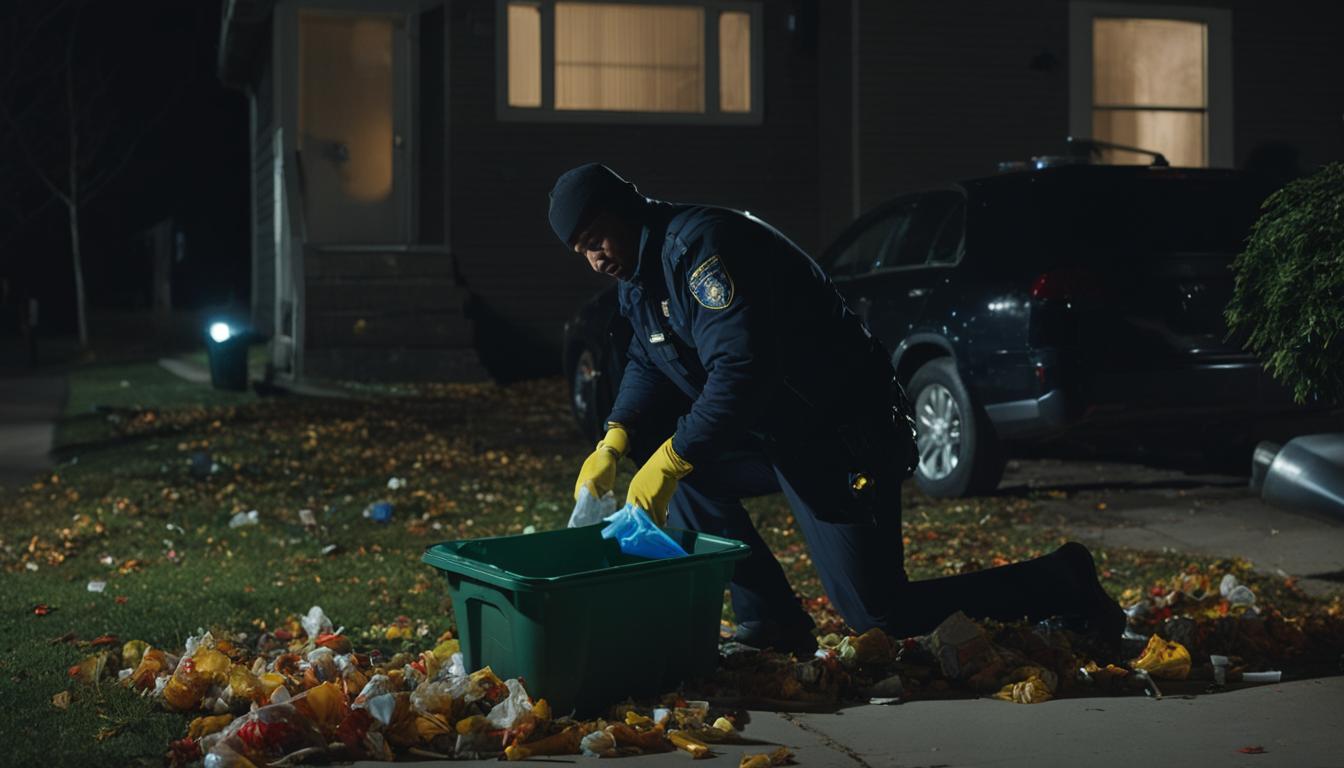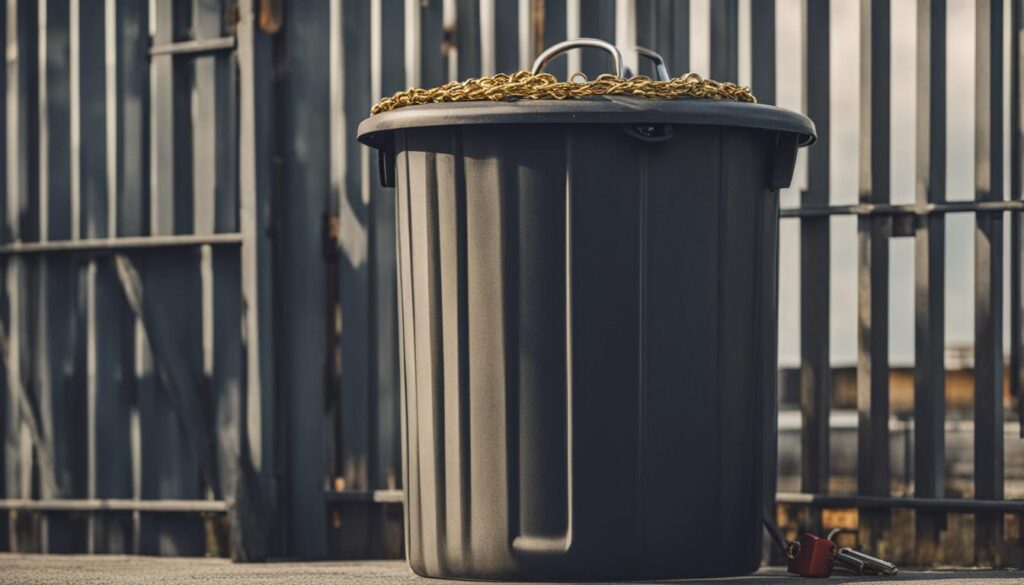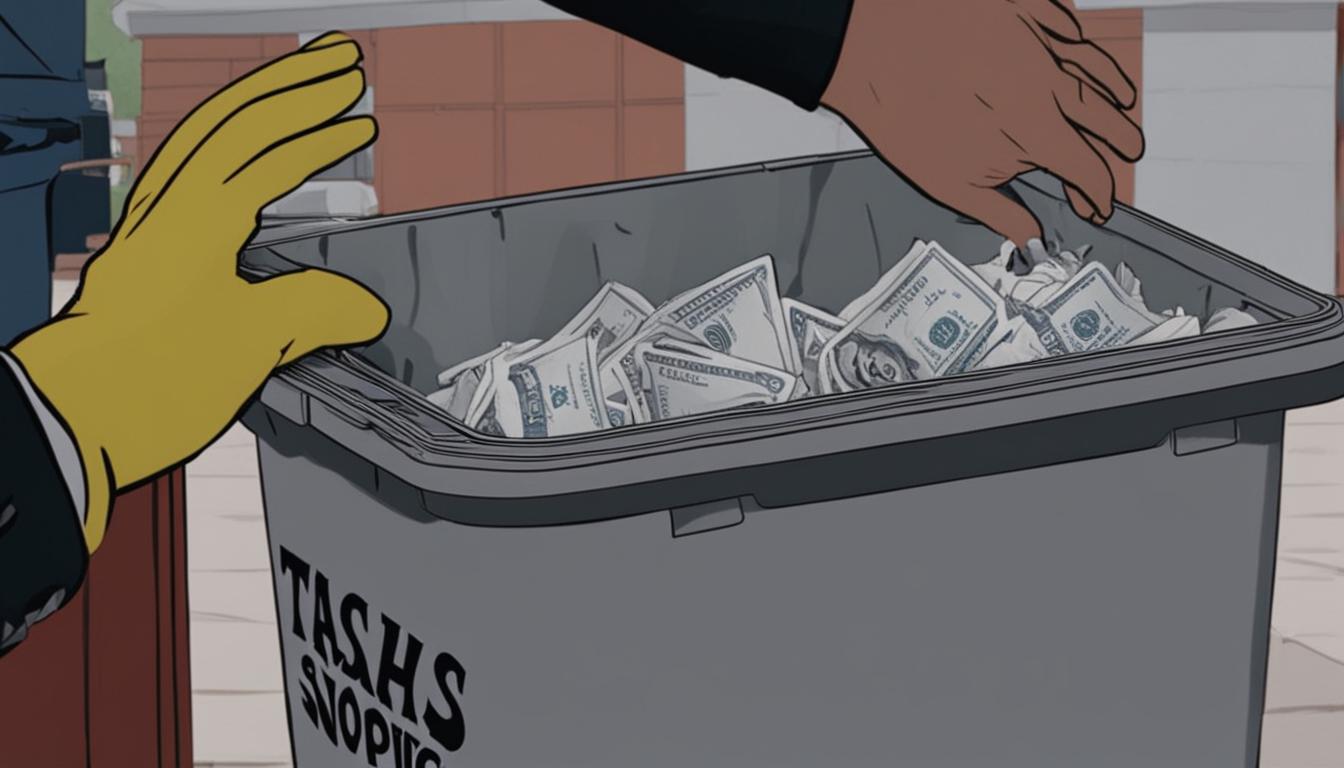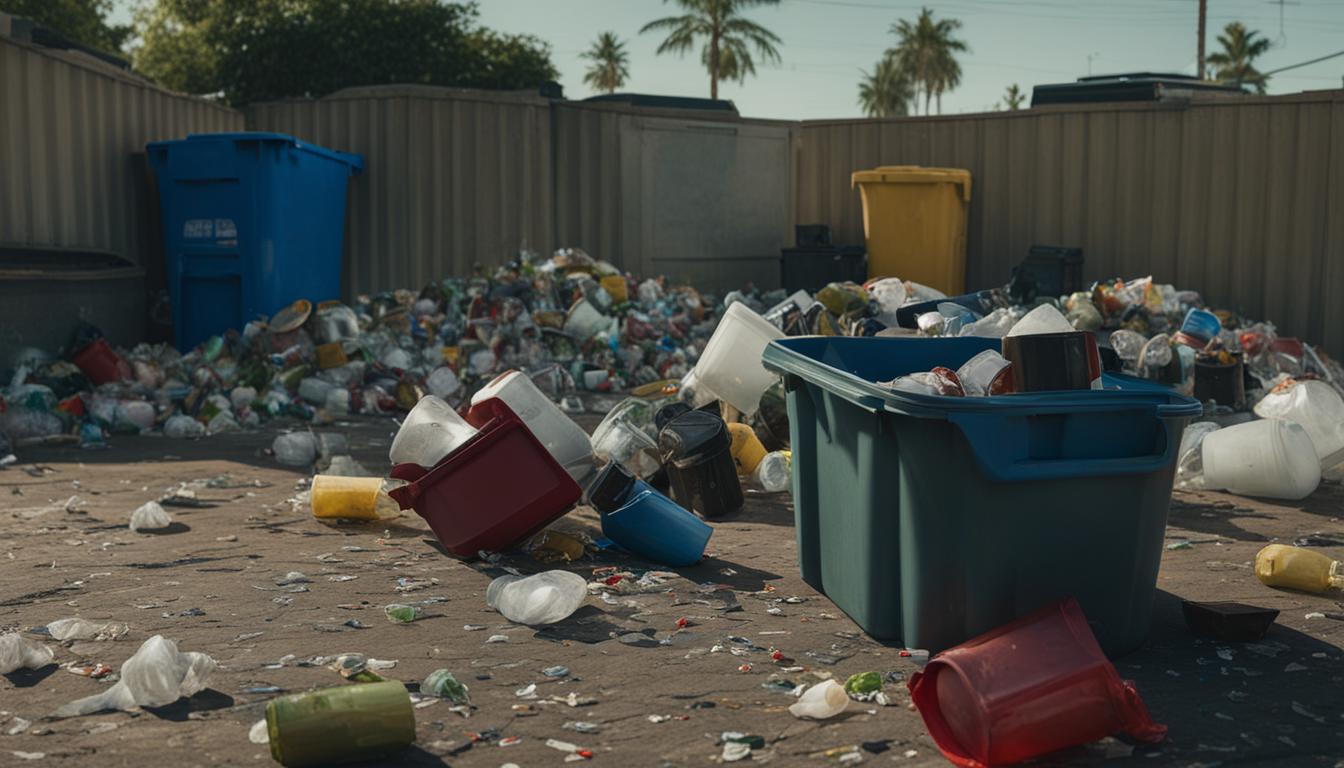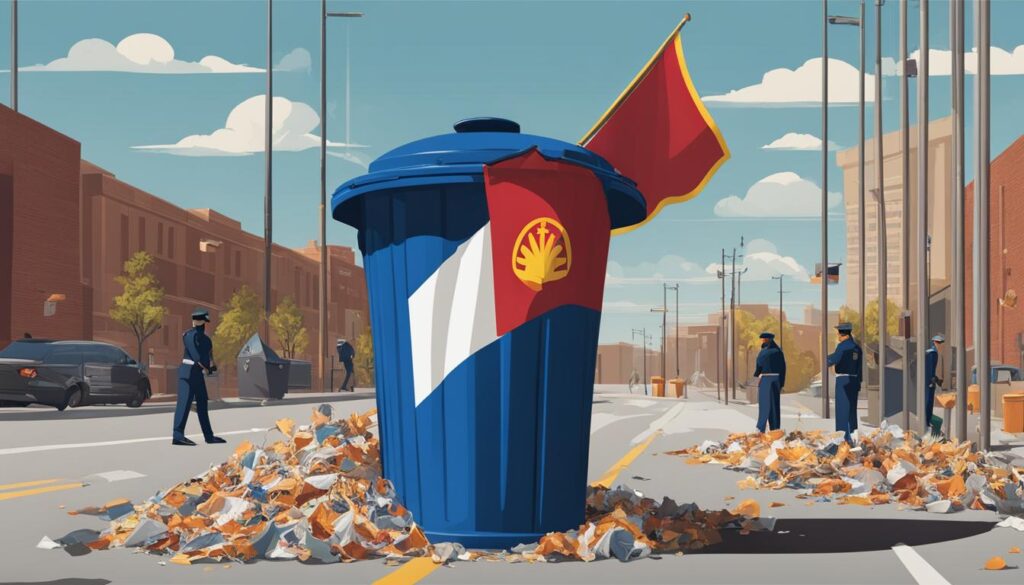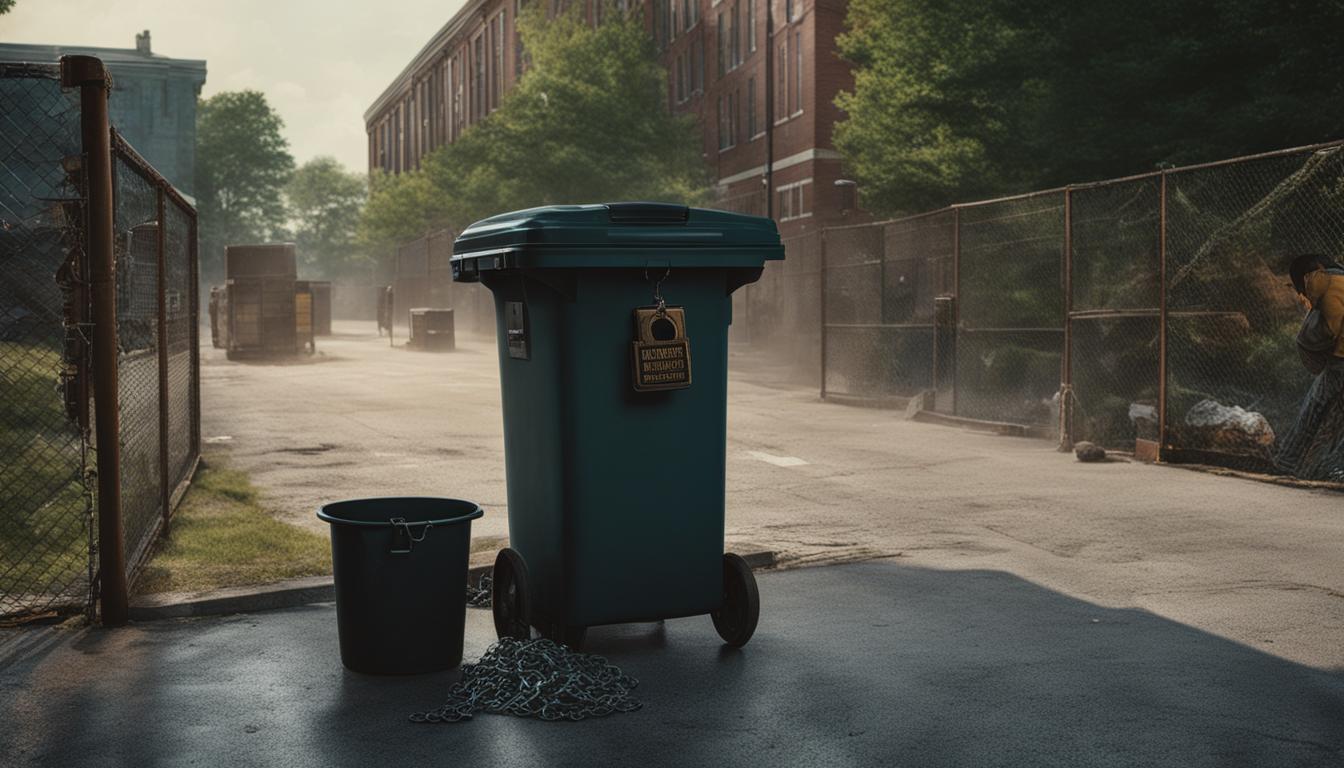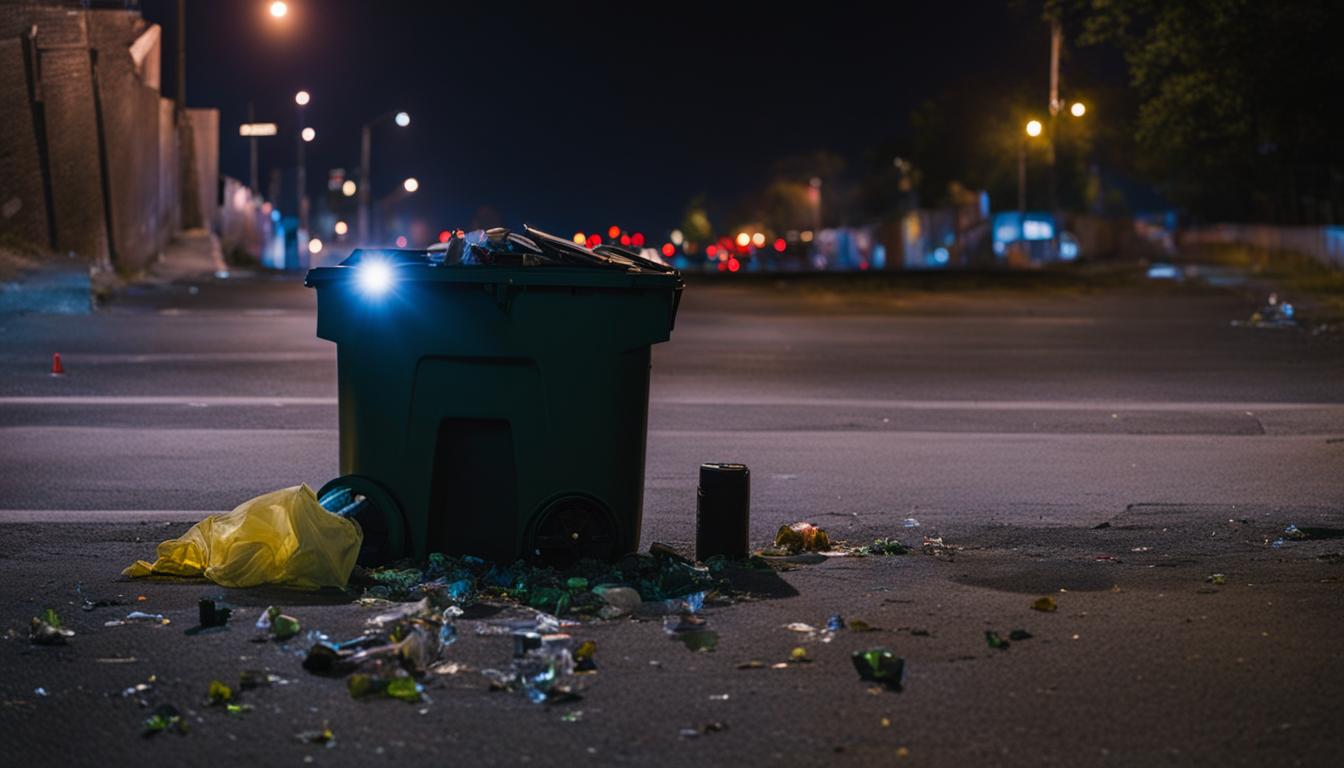Disclosure: This Post Contains Affiliate Links; We earn a commission on purchases.
Have you ever wondered about the privacy of your trash? In Iowa, recent changes in the law have raised questions about dumpster diving, privacy rights, and garbage inspection. Understanding the legal landscape surrounding these issues is crucial to safeguarding your personal information.
Key Takeaways:
- Recent changes in Iowa law allow police to search garbage without a warrant.
- Privacy laws in Iowa no longer protect individuals from others going through their trash.
- Trespassing laws still apply if someone accesses your garbage on private property without permission.
- Consider shredding sensitive documents and disposing of them securely to protect your privacy.
- Understand your legal rights to privacy and take precautions to safeguard your personal information.
Understanding Dumpster Diving and Privacy Laws in Iowa
With the new law in place, the act of going through someone’s trash, also known as dumpster diving, is no longer considered illegal in Iowa. However, it is still important to understand the privacy laws and potential trespassing implications involved. While the new law allows police to search garbage without a warrant, it does not explicitly protect individuals from other people going through their trash. Trespassing laws in Iowa still apply, and if someone enters private property to access the garbage, they could potentially be charged with trespassing.
It is crucial to comprehend the legal nuances surrounding dumpster diving and privacy laws in Iowa to navigate the complexities of trash privacy rights. While the new law grants law enforcement the authority to search through garbage without a warrant in certain circumstances, it does not extend the same protections to individuals. Therefore, while police may have the right to search your trash, unauthorized individuals may not necessarily have the same privilege.
If someone decides to dig through your trash without permission, they may inadvertently be trespassing onto your property. Trespassing occurs when an individual enters someone else’s property without the owner’s consent. In the context of dumpster diving, if someone trespasses onto your property to access your garbage, they could potentially face charges.
It’s important to note that while dumpster diving isn’t illegal in Iowa per se, it’s crucial to respect others’ privacy and property rights. Always obtain proper permissions before accessing someone else’s garbage, even if the law permits it. Trespassing is a serious offense and can carry legal consequences.
If you find yourself concerned about potential trespassing or privacy violations, it may be helpful to familiarize yourself with the specific privacy laws in Iowa. Understanding the legal boundaries and implications can equip you with the necessary knowledge to protect your privacy rights.
For example, suppose you discover that someone has been going through your trash without permission. In that case, it is crucial to gather evidence and report the incident to local law enforcement authorities. They can guide you on the appropriate legal actions to take and ensure your rights are protected.
Moreover, to further elucidate the nuances involved, consider the following comparative analysis:
| Activity | Legality |
|---|---|
| Dumpster Diving with Consent | Legal, as long as it does not involve trespassing or violating any private property rights. |
| Trespassing for Dumpster Diving | Illegal, as it violates property rights and constitutes trespassing. |
| Law Enforcement Searching Trash without a Warrant | Legal under certain circumstances, as authorized by the new law. |
This table clearly illustrates the distinctions between various activities related to dumpster diving and their corresponding legality in Iowa. It is essential to recognize and respect the boundaries set by privacy laws and property rights.
Overall, understanding dumpster diving and privacy laws in Iowa is crucial in navigating the implications of the new legislation. While the act of dumpster diving itself may not be illegal, individuals must still adhere to privacy laws and respect property rights. Being aware of the potential trespassing implications and respecting others’ privacy can help maintain a healthy balance between personal rights and law enforcement powers.
Impact on Trash Privacy Rights in Iowa
The new law in Iowa has sparked concerns regarding trash privacy rights, as residents may feel their privacy is being violated by the ability of anyone, including law enforcement, to freely access and search through their garbage without a warrant. While the law explicitly states that there is no reasonable expectation of privacy for garbage placed outside of a person’s residence, it is essential to recognize that other privacy rights still apply in Iowa.
To safeguard their personal information and protect their privacy, individuals are advised to take precautions. One effective measure is to shred sensitive documents before disposing of them, ensuring that any confidential data cannot be easily accessed. Securely disposing of sensitive documents significantly reduces the risk of identity theft or unauthorized use of personal information.
Furthermore, considering alternative methods of disposal can add an extra layer of protection to trash privacy rights. Using opaque garbage bags or containers can make it more challenging for others to view the contents of discarded items. This ensures that personal information remains concealed, limiting the chance of it falling into the wrong hands.
While the new law grants law enforcement the authority to search garbage without a warrant, it is crucial for individuals to be aware of their legal rights to privacy. Understanding the boundaries and implications of the law can help individuals make informed decisions and take appropriate steps to protect their privacy.
“The new law in Iowa has raised concerns about trash privacy rights. Residents have the right to feel their privacy is respected, even in matters related to garbage disposal.”
Being well-informed about privacy laws in Iowa and one’s legal rights to privacy is essential to navigate the complexities of trash privacy rights. By remaining vigilant and proactive about protecting personal information, individuals can ensure their privacy is safeguarded even in the context of garbage disposal.
Privacy Rights and Trash Disposal in Iowa
| Privacy Rights | Trash Disposal Implications |
|---|---|
| No reasonable expectation of privacy in garbage placed outside of a residence | Potential for law enforcement to search garbage without a warrant |
| Other privacy rights still apply | Individuals have the right to protect their personal information |
| Trespassing laws still apply | Unauthorized individuals accessing private property for garbage retrieval may face trespassing charges |
Understanding Garbage Search and Seizure Laws in Iowa
Under the new law in Iowa, peace officers are granted the authority to conduct searches of garbage placed outside of a person’s residence for waste collection without a search warrant. This means that law enforcement can seize any items of interest found in the trash and use them as evidence in criminal investigations. The law is aimed at promoting public health and cleanliness, but it does raise questions about the balance between privacy rights and law enforcement powers. It is important for individuals to be aware of their legal rights to privacy and understand the implications of the garbage search and seizure laws in Iowa.
| Garbage Search and Seizure Laws in Iowa | Key Points |
|---|---|
| Authority granted to peace officers | Law enforcement can search garbage without a warrant |
| Items of interest | Any found in the trash can be used as evidence |
| Purpose of the law | Promoting public health and cleanliness |
| Privacy rights | Raised questions about the balance between privacy rights and law enforcement powers |
With the increased authority granted to law enforcement, it is crucial for individuals to understand their legal rights in terms of privacy and garbage disposal. While the law allows for the search and seizure of garbage without a warrant, it is important to note that other privacy rights still apply. Individuals should be cautious about the information they discard and take measures to protect their personal data.
Protecting Your Privacy
- Shred sensitive documents: Use a secure shredder to destroy any personal or sensitive information before disposing of it in the trash.
- Dispose of documents securely: Consider using opaque garbage bags or containers to make it harder for others to view the contents of your trash.
- Familiarize yourself with privacy laws: Take the time to understand the privacy laws in Iowa and know your legal rights to privacy.
By taking these precautions, individuals can better safeguard their privacy and ensure that their trash remains secure. It is important to stay informed about the evolving garbage search and seizure laws in Iowa and stay vigilant in protecting personal information.
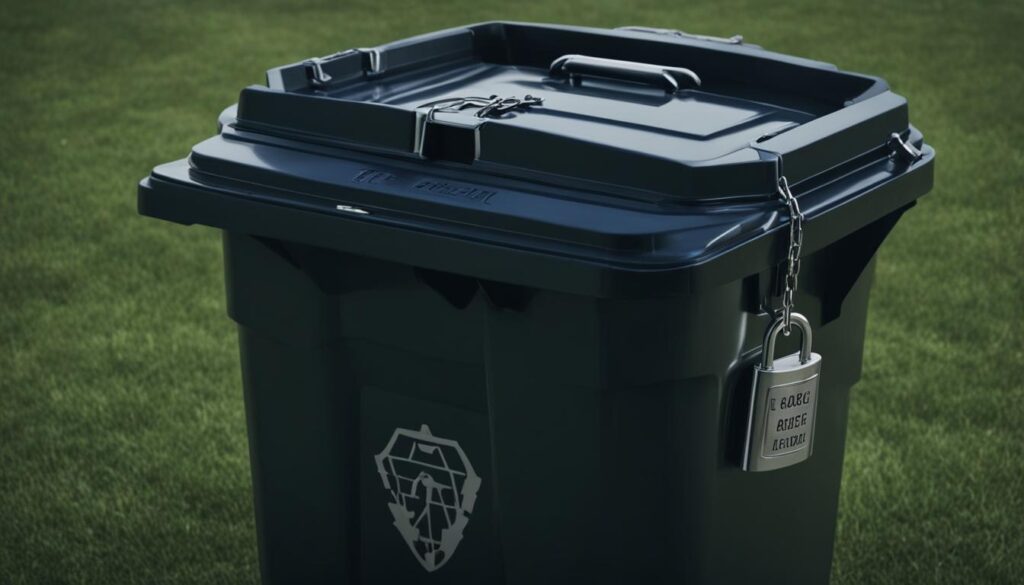
Potential Consequences of Improper Garbage Disposal
With the new law allowing police to search garbage without a warrant, there are potential consequences for improper garbage disposal in Iowa. Individuals should be cautious about what they throw away, especially if it contains sensitive information like financial documents or personal records.
Dumpster divers or unauthorized individuals could potentially retrieve these items from the trash and misuse them. It is important to take steps to protect personal information by securely disposing of sensitive documents or using a shredder before discarding them.
Improper garbage disposal can have serious privacy implications, as personal information can fall into the wrong hands. Identity theft, fraud, and other forms of misuse can occur if sensitive documents are not properly destroyed or protected.
To prevent these potential consequences, individuals should:
- Invest in a reliable and secure shredder to destroy sensitive documents before throwing them away.
- Be mindful of what they discard and avoid throwing away items that contain personal information.
- Consider using opaque garbage bags or containers to make it more difficult for dumpster divers or unauthorized individuals to view the contents.
- Familiarize themselves with the privacy laws in Iowa and their legal rights to privacy.
By taking these proactive measures, individuals can minimize the risks associated with improper garbage disposal and better protect their privacy.
Protecting personal information is essential in an age where privacy is increasingly vulnerable. Proper garbage disposal practices can go a long way in safeguarding sensitive data and maintaining privacy.
Steps to Protect Your Privacy in Iowa
While the new law in Iowa may have changed the ability of law enforcement to search through your trash without a warrant, there are still steps you can take to protect your privacy. Consider the following measures:
1. Secure Shredding
Invest in a reliable and secure shredder to destroy any sensitive documents before throwing them away. This ensures that even if someone goes through your garbage, they won’t be able to retrieve any information.
2. Careful Discarding
Be cautious about what you discard. Think twice before throwing away any documents or items that contain personal or confidential information. Consider using opaque garbage bags or containers to make it more difficult for others to view the contents of your trash.
3. Familiarize Yourself with Privacy Laws
Take the time to educate yourself about the privacy laws in Iowa. Understanding your legal rights to privacy can help you make informed decisions and protect yourself from potential violations.
Remember, while these steps can help safeguard your privacy, it’s important to consult with legal professionals for specific advice regarding privacy laws in Iowa.
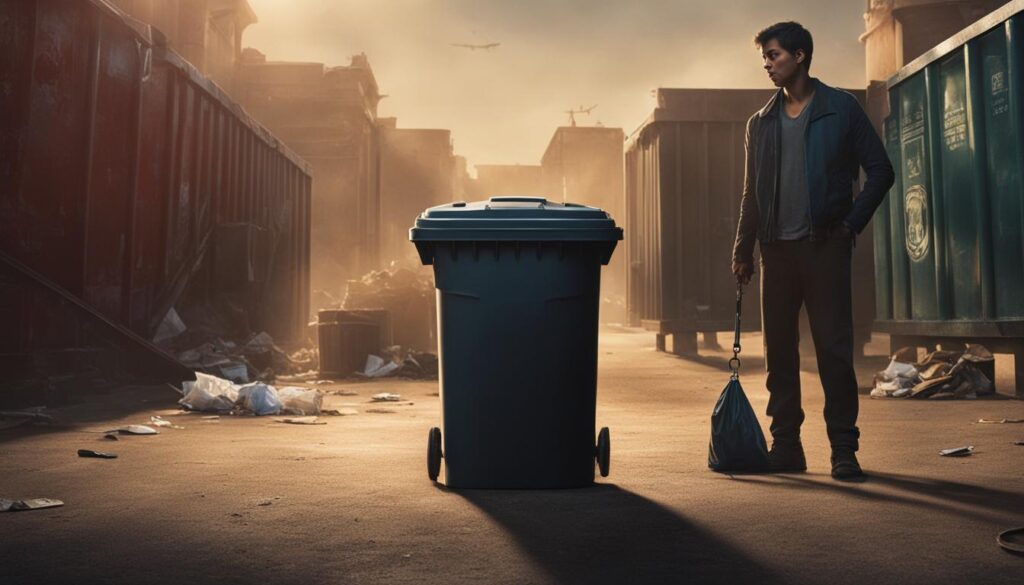
By taking these precautionary measures, you can have greater peace of mind knowing that you’ve done what you can to protect your privacy in the face of changing garbage inspection laws in Iowa.
Conclusion
The legality of going through someone’s trash in Iowa has recently undergone a significant change with the new law allowing police to search garbage without a warrant. While dumpster diving itself may not be explicitly illegal, it is crucial to consider the wider privacy and legal implications.
Understanding your rights under the privacy laws of Iowa is essential to safeguarding your personal information. While the law grants law enforcement the power to search garbage without a warrant, individuals still have the right to protect their privacy. Taking proactive measures such as shredding sensitive documents or disposing of them securely can help mitigate the risks of unauthorized access to personal information.
With the potential consequences of improper garbage disposal and the ease with which dumpster divers or unauthorized individuals can access discarded items, it is crucial to prioritize privacy. By educating ourselves about Iowa’s privacy laws and exercising caution in our disposal practices, we can better ensure that our personal information remains secure and our privacy rights are protected.
Source Links
- https://b100quadcities.com/iowa-law-garbage-search/
- https://www.desmoinesregister.com/story/news/politics/2022/04/21/iowa-supreme-court-ban-warrant-search-garbage-kim-reynolds-law/7402415001/
- https://www.techdirt.com/2021/06/23/iowas-top-court-says-cops-cant-search-peoples-garbage-without-warrant/

Subscribe to Our Newsletter

